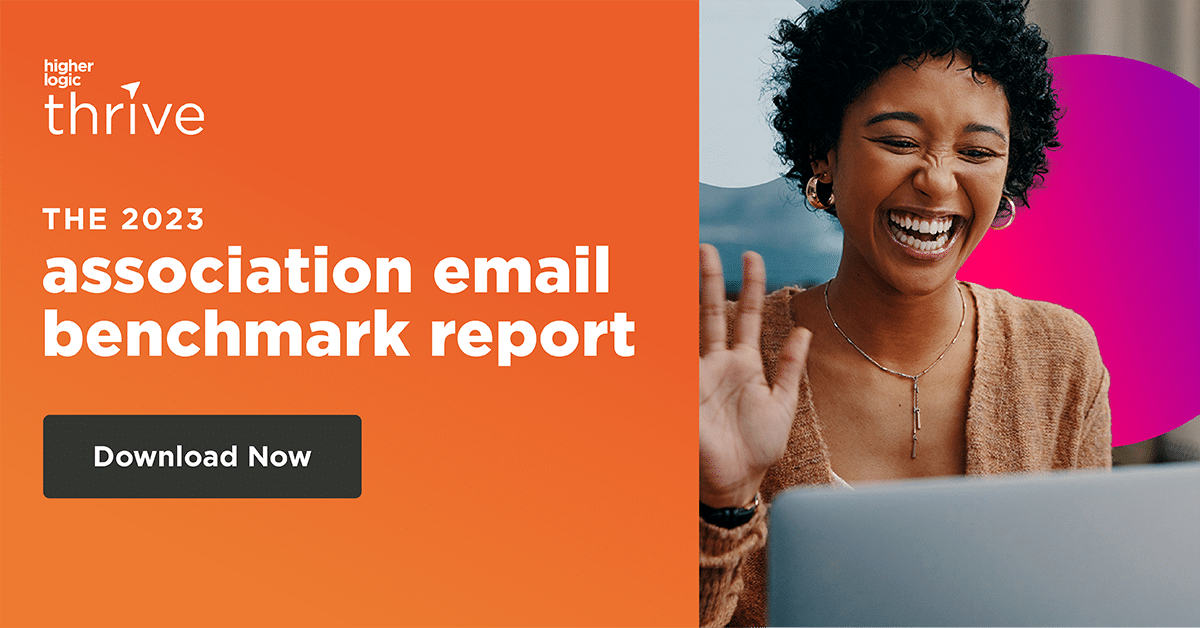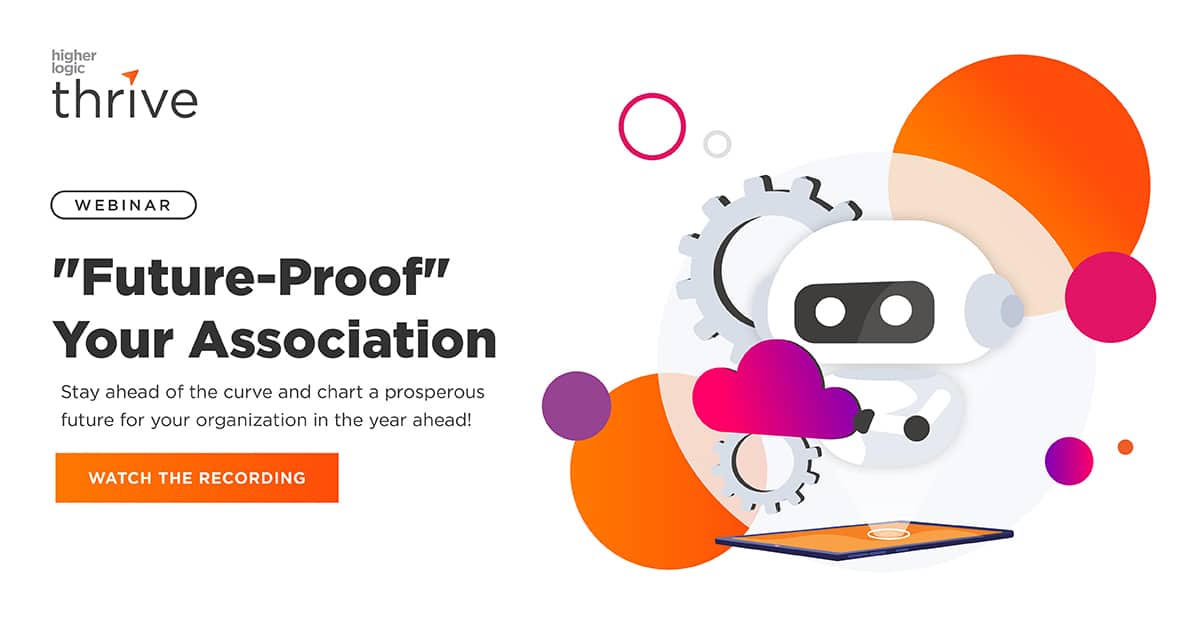Higher Logic Resources

10 min read
Association Executive Playbook
Check out the guide and walk through the major business benefits of online communities, including proven examples.

18 min read
Tags: Report
The 2023 Association Email Benchmark Report
Explore email insights specifically for marketers in the association industry. Understand current trends and improve membership marketing.

Tags: Webinar
How Higher Logic Embraced AI While Mitigating Risk
AI tools can help associations automate the boring stuff so they can get to the good stuff. Higher Logic's CEO and Founder Rob Wenger, and Director of IT, Daryl Dore, are sharing tips for embracing AI while mitigating risk.

Tags: Webinar
Future-Proof Your Association Webinar
Higher Logic presenters Kelly Whelan and Cate Sauer will walk you through tips for assessing your membership, event, and non-dues revenue approaches for 2024 and beyond

6 min read
Tags: Article
Member Retention: The Path to Renewal
From member onboarding to engagement strategies to events, learn how to keep members coming back to your association and increase member retention.

10 min read
Tags: Guide
Your Guide to Winning Back Lapsed Members
Discover strategies and tactics to create win-back email campaigns that compel former members to return.

5 min read
Tags: Template
Higher Logic Thrive Marketing Lookbook
Explore examples of email designs for associations built using Higher Logic Thrive.

15 min read
Tags: Guide
Path to Renewal: Mentoring and Volunteering
Mentoring programs and volunteer programs offer a way to push members up the engagement ladder and keep them coming back to your association.

8 min read
Tags: Article
Keeping Your Trade Association Relevant by Leveraging Online Community
Trade Associations can use online communities to understand members, identify rising leaders, earn more revenue, and stay relevant to members year after year.

4 min read
Tags: Article
Volunteer Engagement Success Kit
Volunteer programs help drive member engagement and association success. Learn how to build a thriving volunteer program with these resources.

Higher Logic Thrive is purpose-built for associations.
With three core packages to choose from, and multiple add-on services to enhance your member experience, create the member engagement solution that works for you!

